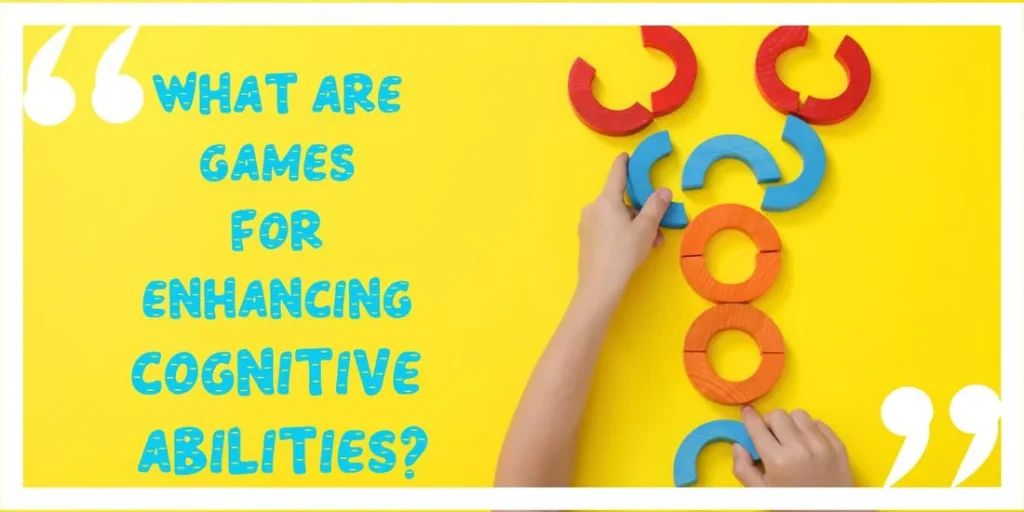In recent years, video games have evolved from simple forms of entertainment to powerful tools for cognitive development. While many parents, educators, and even mental health professionals once viewed video games with skepticism, research has shown that they can have significant benefits for brain health and cognitive skills. In this blog post, we will explore how video games are enhancing cognitive skills, delve into the science behind this phenomenon, and discuss the various types of games that offer these benefits.

Understanding Cognitive Skills
Cognitive skills are the mental processes our brain uses to acquire knowledge, process information, and solve problems. These skills are essential for daily functioning and include:
- Memory: The ability to store, retain, and recall information.
- Attention: The capacity to focus on relevant information while ignoring distractions.
- Perception: The ability to interpret and make sense of sensory information.
- Problem-Solving: The ability to analyze situations and find effective solutions.
- Decision-Making: The capacity to choose between alternatives based on available information.
- Spatial Awareness: The ability to understand and navigate through space.
Video games, particularly those with complex mechanics and immersive environments, have been shown to positively impact all of these cognitive abilities.

1. Improved Memory and Retention
Memory enhancement is one of the most prominent cognitive benefits linked to video gaming. Many games, especially role-playing games (RPGs) and strategy games, require players to remember complex maps, character attributes, and mission objectives. Players must also keep track of multiple tasks or objectives simultaneously.
Studies have demonstrated that playing these types of games can help improve working memory, which is the brain’s short-term storage and manipulation system. For example, action games have been shown to improve the ability to retain information in the short term, whereas puzzle games can enhance long-term memory by requiring players to recall patterns or rules over extended periods.
2. Increased Attention and Focus
Many video games demand sustained attention and concentration. Action games, in particular, require players to maintain focus for extended periods, even in the face of distractions. These games typically present fast-paced environments where players must make split-second decisions, follow complex storylines, and react to stimuli within seconds.
Research suggests that regular gaming can help improve “attentional control,” which is the ability to direct and maintain focus on a task despite competing distractions. Action games are often associated with enhancing visual attention, meaning players can spot relevant details in a scene quicker and more accurately.
3. Enhanced Problem-Solving and Decision-Making
Video games frequently present players with problems or challenges that require strategic thinking and decision-making. For example, puzzle games, strategy games, and adventure games encourage players to devise solutions under pressure, often with limited resources or time constraints. These games promote logical thinking, decision-making under uncertainty, and the ability to evaluate different solutions to a problem.
A study conducted by the University of Rochester found that action games, in particular, improve decision-making skills by enhancing players’ ability to make quick, yet accurate, decisions. Gamers tend to develop faster cognitive processing and are more adept at weighing different options in a given scenario.
4. Spatial Awareness and Visual Processing
Spatial awareness, the ability to perceive the environment and understand spatial relationships, is critical for various real-world activities, including driving, navigation, and even certain jobs in fields like architecture and engineering. Many video games, especially those in the genres of action, puzzle, and simulation, involve navigation and the manipulation of objects within a 3D environment.
Games like Minecraft, Portal, and The Legend of Zelda are great examples of titles that can boost spatial reasoning. These games force players to visualize complex shapes, manage spatial arrangements, and plan their movements within a three-dimensional world. Research has shown that players of such games tend to perform better on spatial reasoning tests, demonstrating enhanced mental rotation skills and better understanding of spatial relationships.
5. Multitasking and Cognitive Flexibility
While multitasking often gets a bad reputation for its potential to decrease productivity in real-world settings, certain video games encourage effective multitasking. Games that involve managing multiple objectives, controlling several characters, or navigating complex environments demand a high level of cognitive flexibility—the ability to switch between tasks and adapt to changing circumstances.
Real-time strategy (RTS) games, such as StarCraft or Age of Empires, require players to balance resource management, troop movements, and defense strategies simultaneously. Action games and open-world games like Grand Theft Auto or The Witcher 3 also encourage players to juggle various tasks and adjust their approach based on shifting challenges and goals.
Research shows that such multitasking in games can improve executive functions, including cognitive flexibility, which is essential for handling rapidly changing or unpredictable environments in real life.

The Types of Games That Enhance Cognitive Skills
Not all video games are created equal when it comes to cognitive development. Below are some specific genres and types of games that have been shown to improve cognitive functions:
1. Puzzle Games
Puzzle games, such as Tetris, Lumosity, and Portal, challenge players to solve problems, think critically, and recognize patterns. These games stimulate cognitive processes like logical reasoning, attention, and memory. Many studies have suggested that puzzle games help boost short-term memory and problem-solving skills by encouraging players to think creatively to overcome obstacles.
2. Action Games
Action-packed games, such as Call of Duty, Fortnite, and Overwatch, require players to react quickly to visual stimuli, make snap decisions, and manage complex in-game situations. These games are particularly effective at improving reaction time, visual attention, and decision-making abilities. The fast-paced nature of these games also helps train the brain to process information more efficiently under pressure.
3. Role-Playing Games (RPGs)
RPGs like The Elder Scrolls V: Skyrim, Final Fantasy, and Mass Effect require players to remember vast amounts of information about characters, quests, and items. These games encourage strategic thinking and long-term planning, which can enhance both memory and problem-solving skills. Additionally, many RPGs offer open-world exploration, which strengthens spatial reasoning and navigation abilities.
4. Strategy Games
Real-time strategy (RTS) games, such as StarCraft, Warcraft, and Civilization, demand high-level cognitive skills like multitasking, planning, and decision-making. Players must assess multiple variables, anticipate opponents’ moves, and manage resources efficiently. These games help improve cognitive flexibility and executive function.
5. Simulation and Sandbox Games
Games like The Sims, SimCity, and Minecraft promote creativity and critical thinking. Players design and build complex systems, whether they’re managing a virtual city or creating structures in a sandbox world. These games can boost problem-solving skills and promote spatial reasoning, as players must understand how individual parts fit into a larger system.

Cognitive Benefits for All Ages
1. For Children
Video games, particularly educational games, can help children develop essential cognitive skills like problem-solving, memory, and spatial reasoning. Games like Brain Age and Dr. Kawashima’s Brain Training are designed to improve cognitive functions and can make learning fun. Additionally, cooperative and multiplayer games encourage social interaction and teamwork.
2. For Adults
For adults, gaming can serve as a mental workout that keeps cognitive functions sharp. Puzzle games and action games help improve memory retention, decision-making, and multitasking, which are essential in fast-paced work environments. Video games can also enhance mood and alleviate stress, which is beneficial for mental health and overall well-being.
3. For Older Adults
In older adults, research has shown that gaming can help slow down cognitive decline and reduce the risk of dementia. Games that involve puzzles, strategy, and memory exercises can be used as tools for keeping the mind active and engaged. Studies have found that seniors who engage in video games exhibit improvements in cognitive function and enhanced attention spans.
Conclusion
Video games are often dismissed as a mere form of entertainment, but the evidence supporting their role in enhancing cognitive skills is undeniable. Whether you are a child, adult, or senior, engaging in video games can help improve memory, attention, problem-solving, decision-making, and spatial awareness. By challenging the brain in ways that few other activities do, video games offer a fun and effective method for cognitive enhancement.
So the next time someone asks if video games are a waste of time, you can confidently explain how they’re helping to sharpen the mind and foster essential cognitive skills. Whether you’re looking to boost your brain power or just unwind after a long day, gaming can be a rewarding and beneficial activity for people of all ages.






